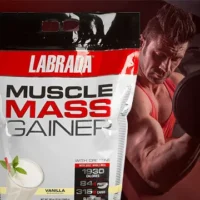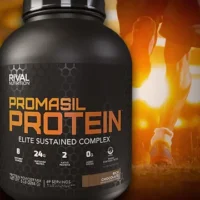Knowledge BaseYou're Questions Answered
BACK
Can protein powder cause headaches?
While protein powders are popular supplements for muscle building and diet management, some individuals may experience headaches as a potential side effect after consumption. This issue is not typically a direct effect of the protein itself but may be related to other ingredients within the powder or lifestyle factors associated with its use.
There are several potential reasons why protein powders might lead to headaches:
- Artificial Sweeteners: Many protein powders contain artificial sweeteners like aspartame, sucralose, or acesulfame potassium, which can trigger headaches in some people. These sweeteners are often included in diet products and may cause headaches or other neurological symptoms in sensitive individuals (1).
- Additives and Preservatives: Certain additives and preservatives used in protein powders, such as nitrates or monosodium glutamate (MSG), might also contribute to headaches. These compounds can increase blood flow to the brain and cause vascular headaches (2).
- Heavy Metals: Low-quality protein powders may contain trace amounts of heavy metals like lead, arsenic, or cadmium, which are contaminants that can lead to headaches and other health issues over time (3).
- Lactose Intolerance: For individuals with lactose intolerance, consuming whey-based protein powders that contain lactose can lead to gastrointestinal distress, dehydration, and consequentially, headaches (4).
- Dehydration: Protein powders can potentially cause dehydration, as protein requires more water for metabolism compared to fats or carbohydrates. Insufficient fluid intake after consuming protein powders can lead to dehydration headaches (5).
To mitigate the risk of headaches when using protein powders, consider the following tips:
- Choose protein powders without artificial sweeteners or with sweeteners that you know you tolerate well.
- Ensure adequate hydration by drinking plenty of water before, during, and after your workouts, especially if you consume protein shakes as part of your exercise routine.
- Select high-quality protein powders that are tested and verified to be free of heavy metals and other contaminants.
- If you are lactose intolerant, opt for lactose-free protein sources like whey protein isolate or plant-based proteins.
Was this answer helpful? Let us know!
Like
References:
- Lindseth, G. N., Coolahan, S. E., Petros, T. V., & Lindseth, P. D. (2014). Neurobehavioral effects of aspartame consumption. Research in Nursing & Health, 37(3), 185-193.
- Shimada, A., Cairncross, C., & Myers, J. P. (2013). Dietary additives and chronic headache: Applying the Bradford Hill criteria. Medical Hypotheses, 81(5), 765-774.
- Genuis, S. J., & Kelln, K. L. (2015). Toxicant exposure and bioaccumulation: A common and potentially reversible cause of cognitive dysfunction and dementia. Behavioral Neurology, 2015, 620143.
- Suarez, F. L., Savaiano, D., & Levitt, M. D. (1995). A comparison of symptoms after the consumption of milk or lactose-hydrolyzed milk by people with self-reported severe lactose intolerance. New England Journal of Medicine, 333(1), 1-4.
- Popkin, B. M., D'Anci, K. E., & Rosenberg, I. H. (2010). Water, hydration and health. Nutrition Reviews, 68(8), 439-458.
Add to this Answer
Related Questions
Protein vs Protein

Disclosure
Your Answer
Do you have a suggestion to improve the answer? Please detail your suggestions and provide any references to information that may support your answer if available.
The content on this site has not been written, reviewed or endorsed by a medical professional. We assume no liability for the misuse of supplements and recommend you review the label of any product, as well as consulting with your health care professional.
We are a participant in the Amazon Services LLC Associates Program, an affiliate advertising program designed to provide a means for us to earn fees by linking to Amazon.com and affiliated sites.
We are a participant in the Amazon Services LLC Associates Program, an affiliate advertising program designed to provide a means for us to earn fees by linking to Amazon.com and affiliated sites.
© 2025 ProteinPowder.com


